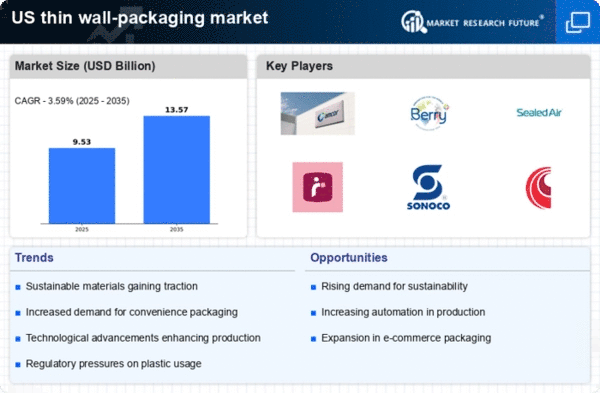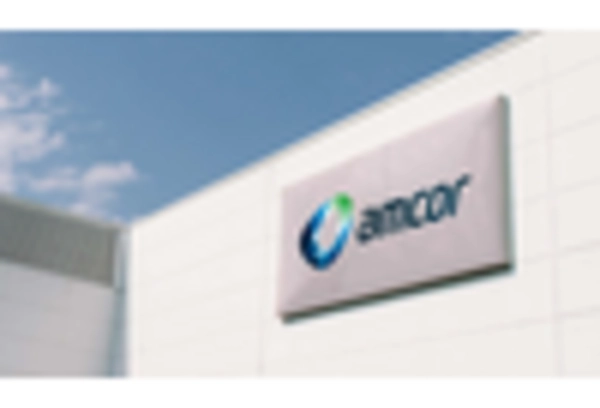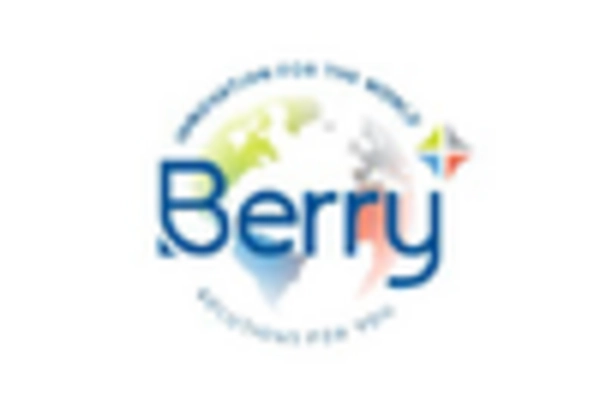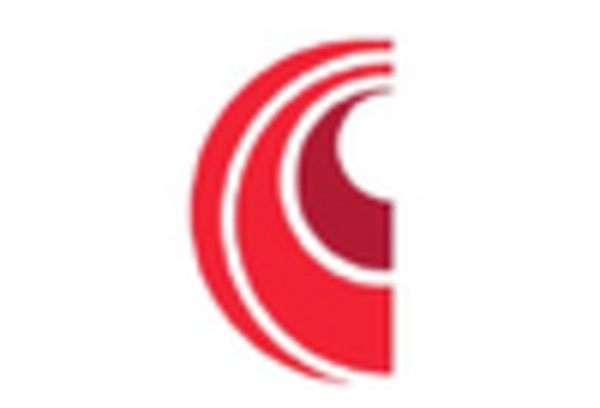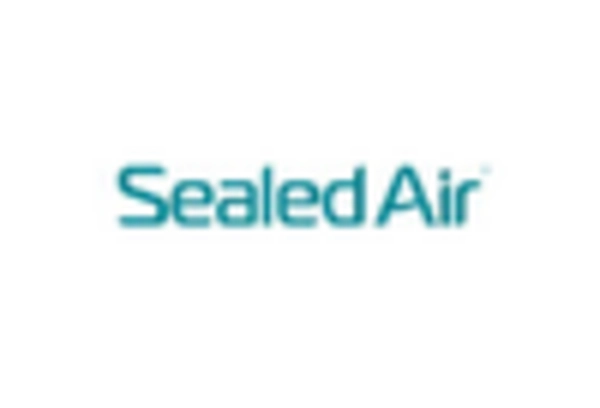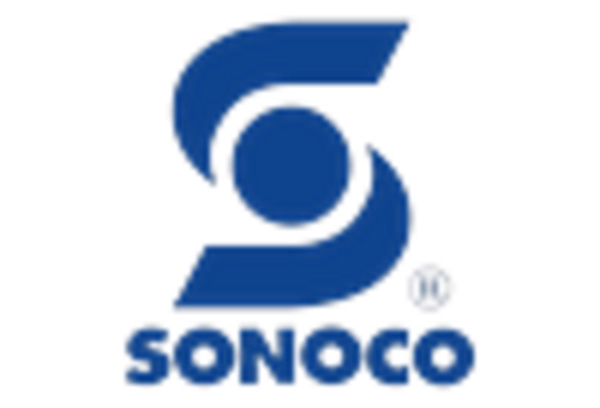Growth of the Food Delivery Sector
The expansion of the food delivery sector is significantly influencing the thin wall-packaging market. As more consumers opt for food delivery services, the demand for efficient and effective packaging solutions is on the rise. Thin wall-packaging offers the advantage of preserving food quality while being lightweight and cost-effective. This trend is particularly pronounced in urban areas, where convenience is paramount. The thin wall-packaging market is expected to capitalize on this growth, with projections indicating an increase of approximately 10% in market size over the next few years. Companies are likely to focus on developing packaging that meets the specific needs of the food delivery sector, further driving innovation and market expansion.
Consumer Preference for Convenience
In the current landscape, consumer preferences are shifting towards convenience, significantly impacting the thin wall-packaging market. Products that are easy to open, resealable, and portable are increasingly favored by consumers. This trend is particularly evident in the food and beverage sector, where ready-to-eat meals and snacks are gaining traction. The thin wall-packaging market is adapting to these preferences by offering innovative packaging solutions that enhance user experience. As a result, companies are likely to invest in research and development to create packaging that meets these demands. The market is expected to see a growth rate of around 7% in the coming years, driven by this consumer-centric approach.
Rising Demand for Lightweight Packaging
The thin wall-packaging market is experiencing a notable increase in demand for lightweight packaging solutions. This trend is driven by the need for manufacturers to reduce shipping costs and improve fuel efficiency. Lightweight packaging not only minimizes transportation expenses but also aligns with consumer preferences for convenience. In 2025, the market for lightweight packaging is projected to grow by approximately 8% annually, indicating a robust shift towards thinner materials. As companies strive to enhance their sustainability profiles, the adoption of thin wall-packaging solutions is likely to accelerate, further propelling market growth. The thin wall-packaging market is thus positioned to benefit from this rising demand, as businesses seek to optimize their supply chains while meeting consumer expectations.
Regulatory Support for Sustainable Practices
The thin wall-packaging market is benefiting from increasing regulatory support aimed at promoting sustainable practices. Governments are implementing policies that encourage the use of eco-friendly materials and reduce plastic waste. This regulatory environment is fostering innovation within the thin wall-packaging market, as companies seek to comply with new standards while maintaining product integrity. For instance, the introduction of incentives for using recyclable materials is likely to drive investment in thin wall-packaging solutions. As a result, the market could witness a growth rate of approximately 6% as businesses adapt to these regulations and consumer expectations for sustainability.
Technological Innovations in Material Science
Technological advancements in material science are playing a crucial role in shaping the thin wall-packaging market. Innovations such as the development of biodegradable polymers and advanced barrier coatings are enhancing the performance of thin wall-packaging solutions. These technologies not only improve product shelf life but also address environmental concerns associated with traditional packaging materials. The thin wall-packaging market is likely to see a surge in demand for these innovative solutions, as manufacturers seek to differentiate their products in a competitive landscape. The market is projected to grow by around 9% as companies leverage these technological advancements to meet evolving consumer needs.


